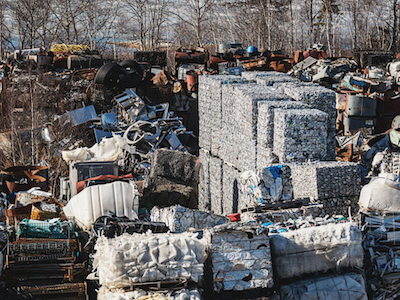Market
August 18, 2022
Caribbean nation bans most scrap exports
The Trinidad and Tobago government has outlawed the shipping of most scrap steel and copper abroad for, provisionally, six months to tackle the theft of infrastructure. Telcom TSTT and water company WASA have been worst hit, with service to customers affected.
The prohibition is intended to be short term while the government devises a legislative framework to regulate the scrap industry. That will hopefully happen before 28 February so the full duration of the curb will not be needed, said attorney general Reginald Armour.
But anyone breaking the ban will be liable to a fine up to $15,000 (€14,700) or imprisonment of 12 months.
Stakeholders in the ferrous scrap industry will be consulted. “We are going to be inviting them to make recommendations to us on how they consider their industry should be regulated, so as to continue to be a lawful, thriving, remunerative industry,” he was quoted as saying in local media.
Armour described the widespread thefts as an abuse of the legitimate scrap industry in an attempt to convert it into a criminal enterprise.
Copper and fibre optic cables, worth millions of dollars, have been stolen from TSTT more than once and have left tens of thousands of customers without telephone and internet services.
Also, police have recently recovered from a scrap yard in central Trinidad more than $1 M (€980,000) worth of I-beams and steel poles belonging to the government. Copper and batteries have also been stolen from the National Gas Company and copper cable and antennas from a radio station.
National security minister Fitzgerald Hinds said copper thefts have increased since 2020. In that year, there were 58 reports and 30 people arrested. In 2021 there were 87 reports and 52 arrests. To 8 August this year, the respective numbers were 162 and 136.
Hinds added: “We have cable all over this country, thousands of gates, metal fences. Somebody is obviously buying these bits of material, and somebody is actually selling them … It is to feed an industry, theft, serious criminal conduct and it is severely disruptive.”
Defence Force soldiers have been ordered to patrol state utilities and the police have offered a reward for information leading to the arrest of those responsible for stealing copper.
The country’s scrap dealers’ trade body reacted angrily to the government’s near-blanket ban, saying it is prepared to take legal action.
Association president Allan Ferguson commented: “If they close down this industry, we will take them straight to the Privy Council. Any time they touch this industry, the government will have to pay millions of dollars to us.” The Privy Council is Trinidad and Tobago’s ultimate court of appeal.
Some exports will be allowed during the ban. Special permits will be given by a government committee for the sale abroad of scrap or surplus material from the manufacturing of goods.
Attorney general Reginald Armour said: “Our intention is to keep the legitimate industry alive, but under constant review under this six-month period, so there would be no loopholes through which any illicit undertaking would continue.”





